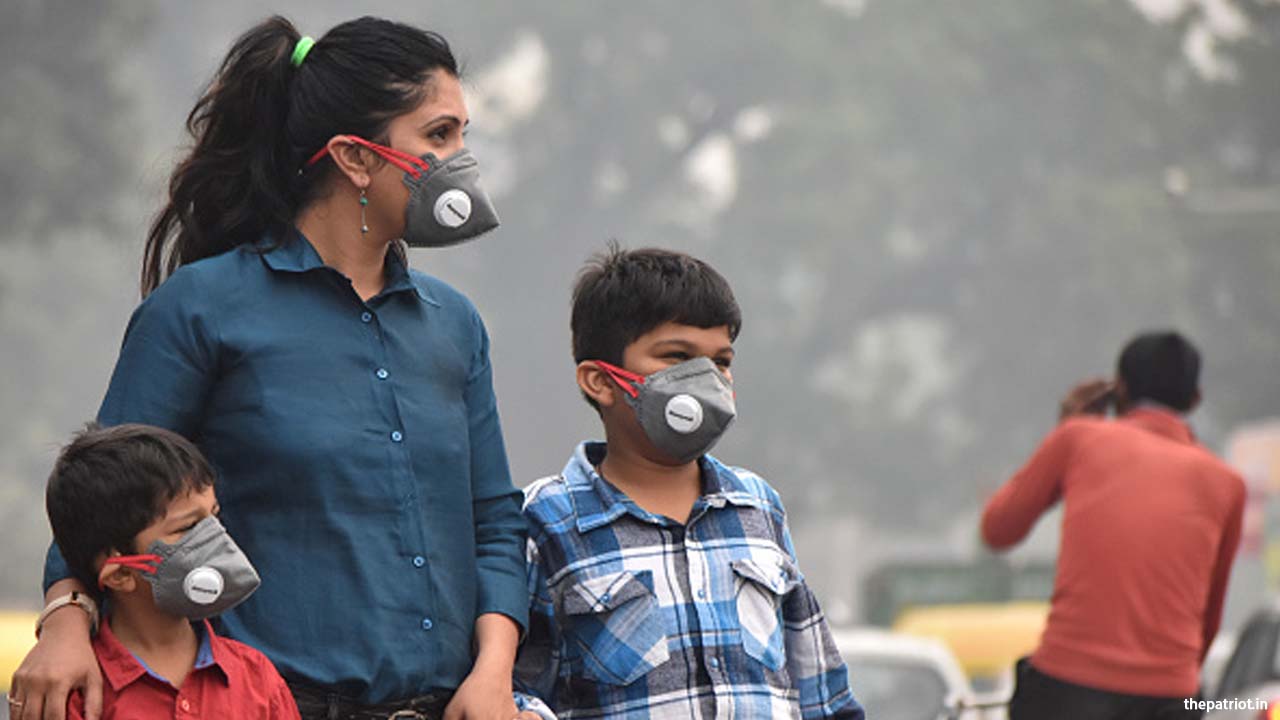Every year October-November-December, with the onset of the winter season, a layer of toxic smog surrounds the Delhi-NCR region. This toxic smog contains carbon monoxide, sulfur oxides, and nitrogen oxides with other particulate matter. The reason for this pollution is considered to be the use of firecrackers on Diwali and crop burning in Northern India. The AQI (Air Quality Index) level in Delhi-NCR is observed to be 400-600 which is much above the hazardous and can be severely dangerous, especially for patients with lung or cardiovascular disorders. It shows long-term and short-term side effects. Children are the one which is affected largely (as their immune systems are underdeveloped) as they go out every day to schools breathing this toxic air. Children breathe more frequently as compared to adults thus more contaminants go inside. However, the government has already issued notice to shut down the schools, and attendance in government offices has been reduced to 50%.
Serious consequences
- Damage to the lungs
- Kids are more prone to diseases like asthma, RTI, pneumonia, etc.
- Lung cancer
- Cardiovascular effects like high blood pressure and other heart-related ailments.
Tips to protect your family
Check your local AQI levels – AQI is the Air Quality Index. Check your local AQI reading daily. When the air quality is unhealthy, avoid stepping out of the house. Step out only if it is very necessary.
Always wear a mask while going out – Masks are good but they don’t provide complete protection from contaminated air. But at least having something is better than having nothing. Industrial masks and N95 masks are good but still don’t protect completely.
Avoid going out – Avoid exercising out in this bad air quality. Skip your morning walk, instead, try gymming or doing indoor exercises. Reduce your child’s time playing outside. Go only if it is urgent and wear a mask compulsorily.
Air purifying plants in the home – Certain plants clean the air and are known to reduce air pollution. They are highly useful in homes and office workplaces. They are not as efficient as air purifying machines but are very cost-efficient and affordable.
Air purifiers – Air purifiers purify the internal air effectively. It improves indoor air quality and makes it suitable to breathe. However, these come costly but nothing is more important than investing in your health.
Promote healthy eating – Promote healthy eating for your kids. Consume a well-balanced diet full of nutrients, vitamins, and minerals which will provide defense against this air pollution. Boost your immunity through healthy eating.
Protect your family, especially kids from this air pollution by following these tips.

 In recent research, it has been found that 97% of Indians are breathing unhealthy air that is contaminated. According to a report by WHO, air pollution kills approximately 30,000 people every year in Delhi. Though Delhi NCR gets a layer of toxic smog every year at this time, this year, the situation has worsened. Here are some tips to protect your
In recent research, it has been found that 97% of Indians are breathing unhealthy air that is contaminated. According to a report by WHO, air pollution kills approximately 30,000 people every year in Delhi. Though Delhi NCR gets a layer of toxic smog every year at this time, this year, the situation has worsened. Here are some tips to protect your 





.jpeg)






.jpeg)






.jpeg)








.jpg)


.jpg)
